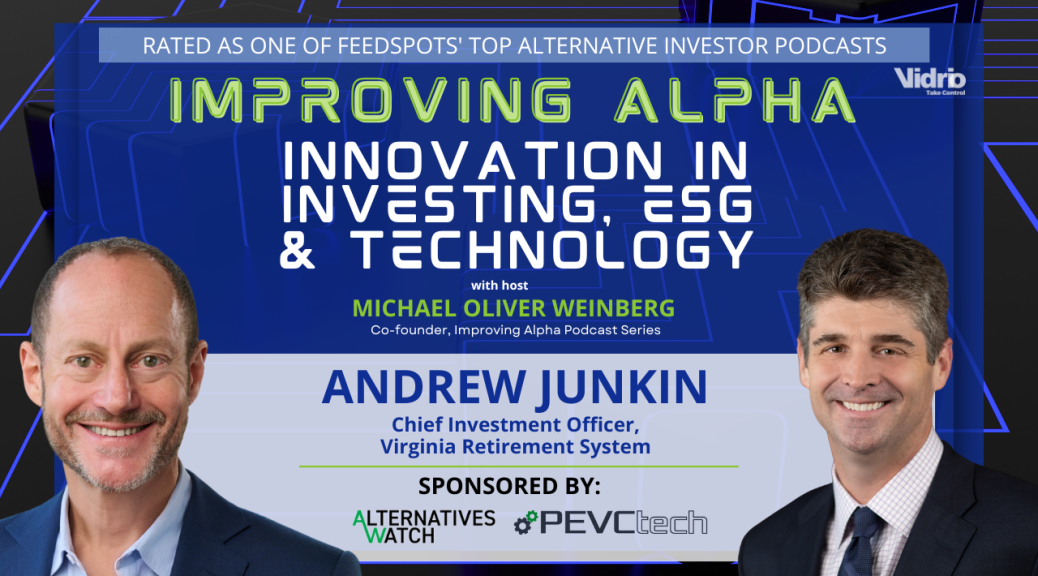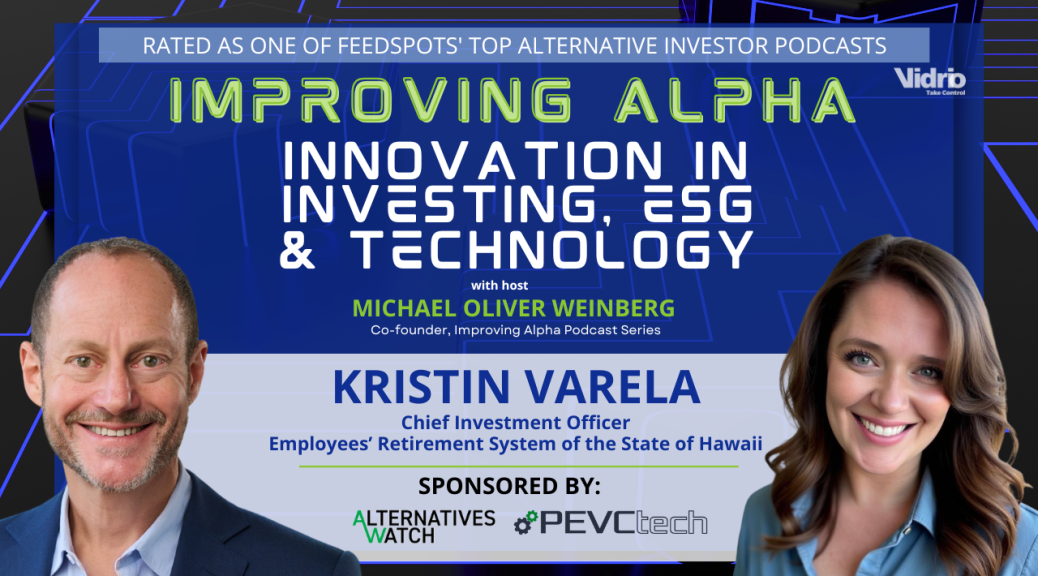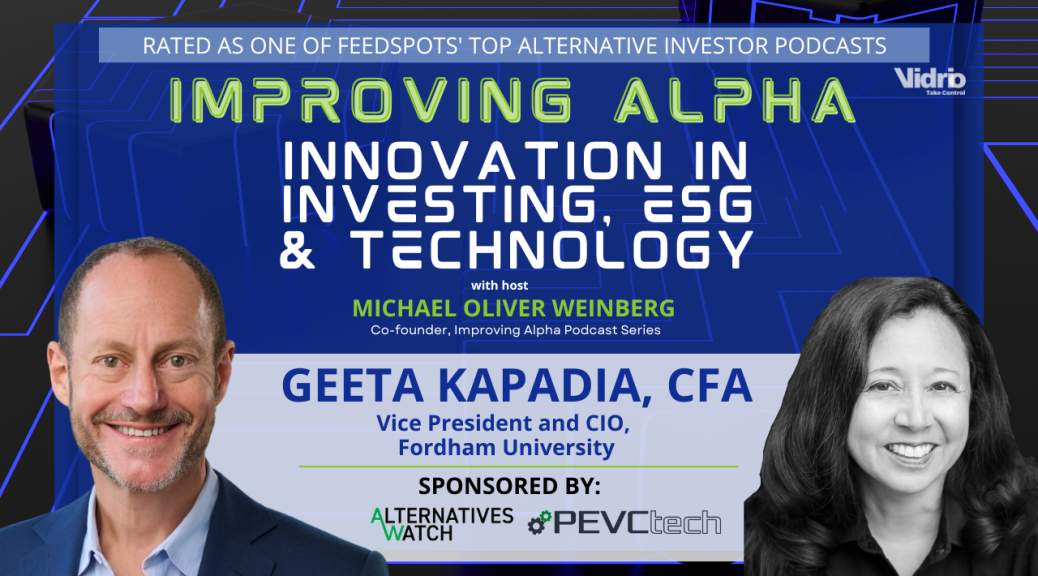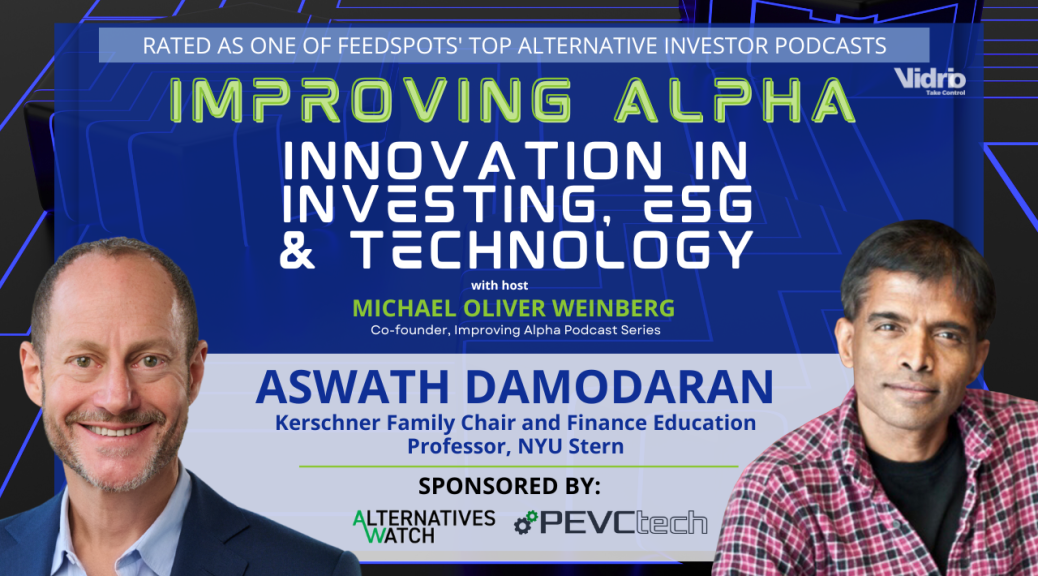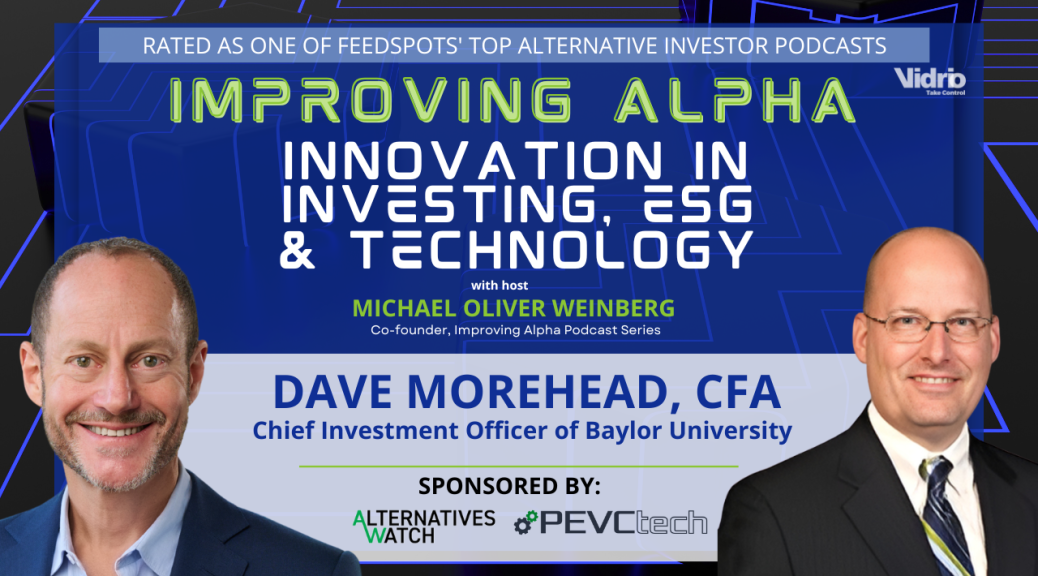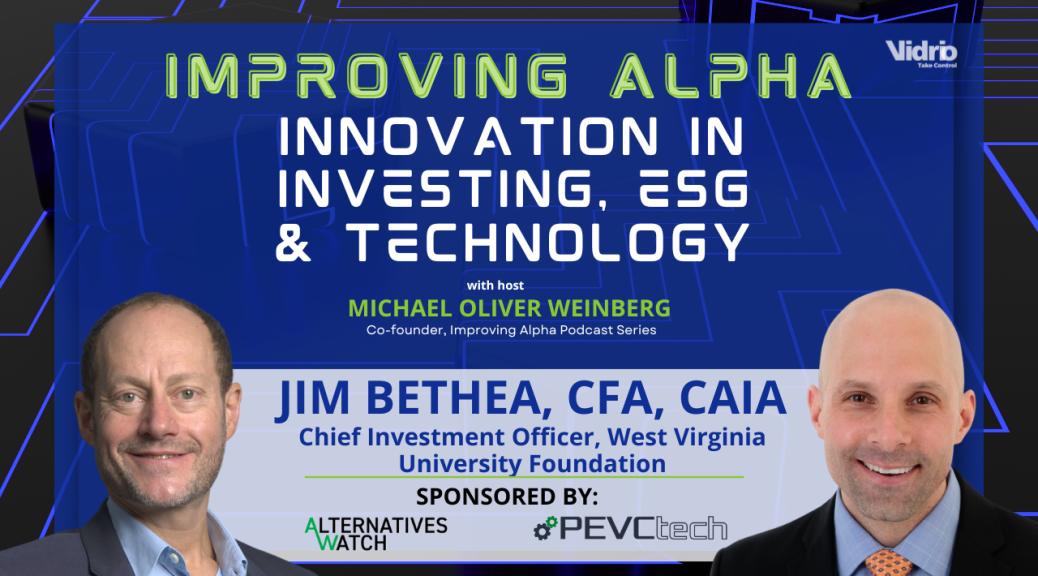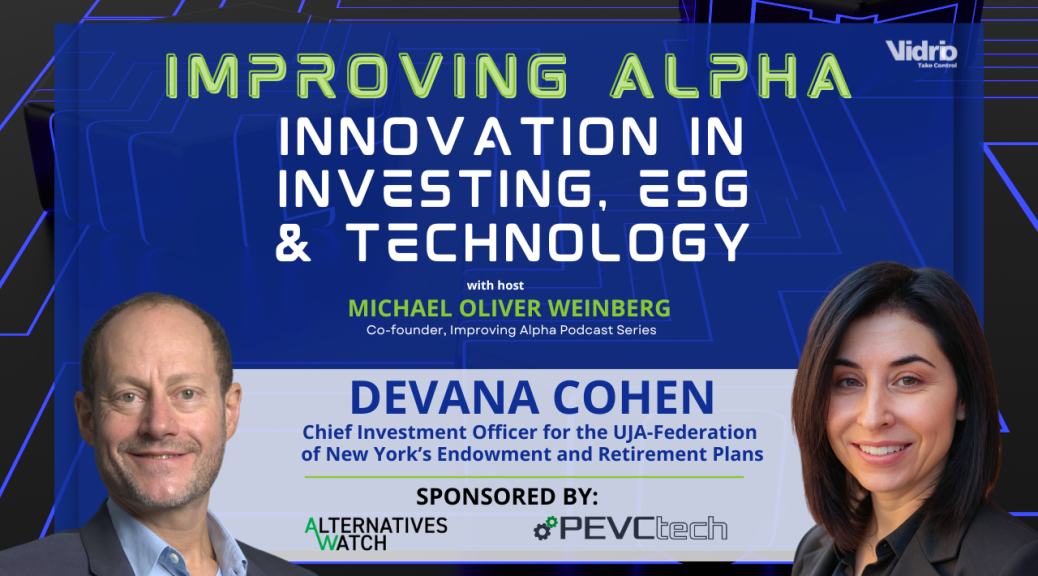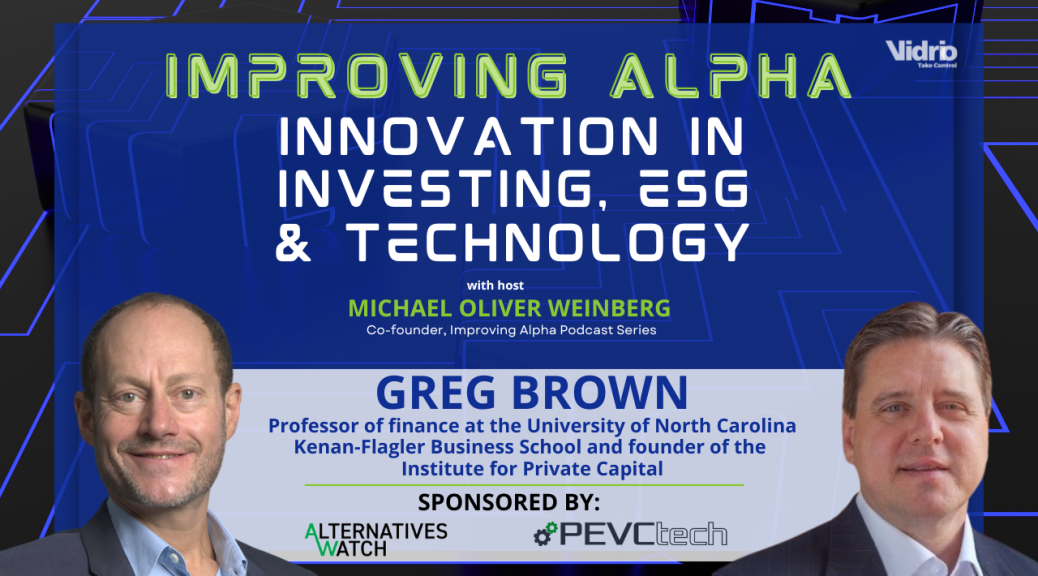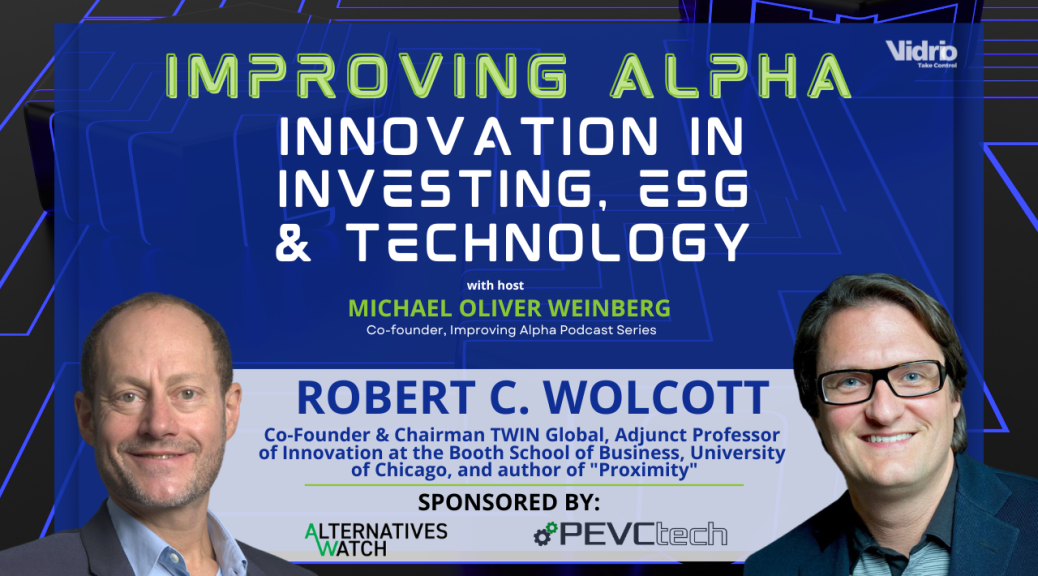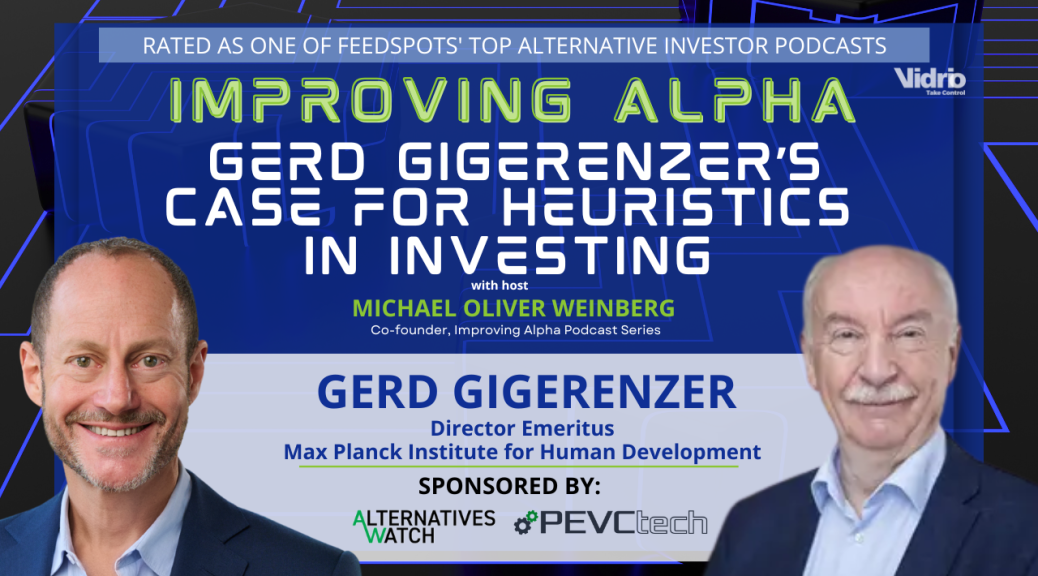
Improving Alpha: Gerd Gigerenzer’s Case for Heuristics in Investing
Podcast: Play in new window | Download | Embed
Albert Einstein is often quoted as stating, “The intuitive mind is a sacred gift and the rational mind is a faithful servant.” As a society today, in this unstable world, you need both to accelerate success while avoiding defensive decision-making. Instead of taking up that defensive position, have the courage to go with more robust yet easier strategies blending data and intuition together.
There’s no better guest to help us navigate the field of heuristics and how institutional investors can apply psychology today than Gerd Gigerenzer , Director Emeritus, Max Planck Institute for Human Development. In this latest Improving Alpha discussion, Gerd tells us why he gave up his life as a musician and chased his dreams in the field of academia, eventually writing several books, such as:
Gut Feelings: The Intelligence of the Unconscious
Risk Savvy: How to Make Good Decisions
Simple Heuristics That Make Us Smart
How to Stay Smart in a Smart World
Calculated Risks: How to Know When Numbers Deceive You
Additional discussion points in this podcast include:
- What is the purpose of the Max Planck Institutes around the world, and how can they impact the lives of those in the financial space?
- What is a heuristic?
- Quarterly Reporting: Aswath Damodaran recently expressed his opinions on quarterly reporting. What does Gerd believe when it comes to the value of quarterly reporting for companies today?
- The concept of volatility and what it means today for those working in finance.
- Why did Harry Markowitz avoid using his own Nobel-winning prize method in choosing his own investments in retirement, favoring a simple heuristic that is equal to 1/N?
- What is the Turkey Illusion, and why can this be applied to shocks like the financial crisis of 2008 and the Great Depression?
- How can AI be leveraged in both an uncertain world and a more narrow/stable situation? Are there different applications?
- And more.
Resources:
- Simple Heuristics That Make Us Smart by Gerd Gigerenzer
- Calculated Risks by Gerd Gigerenzer
- Risk Savvy by Gerd Gigerenzer
- How to Stay Smart in a Smart World by Gerd Gigerenzer
- Radical Uncertainty by John Kay and Mervyn King
Connect with Gerd Gigerenzer:
Connect with Michael Oliver Weinberg:
About Our Guest:
Gerd Gigerenzer is Director Emeritus at the Max Planck Institute for Human Development and founder of the Harding Center for Risk Literacy. A former professor at the University of Chicago, he is internationally known for his research on decision-making under uncertainty, heuristics, and statistical literacy. His work challenges conventional ideas of optimization and highlights how simple, well-designed rules can lead to better outcomes in complex, uncertain environments.
The information covered and posted represents the views and opinions of the guest and does not necessarily represent the views or opinions of Vidrio Financial, and/or our host, Michael Oliver Weinberg. The Content has been made available for informational and educational purposes only. The Content is not intended to be a substitute for professional investing advice. Always seek the advice of your financial advisor or other qualified financial service provider with any questions you may have regarding your investment planning.
The release date may not correspond to the recording date.
